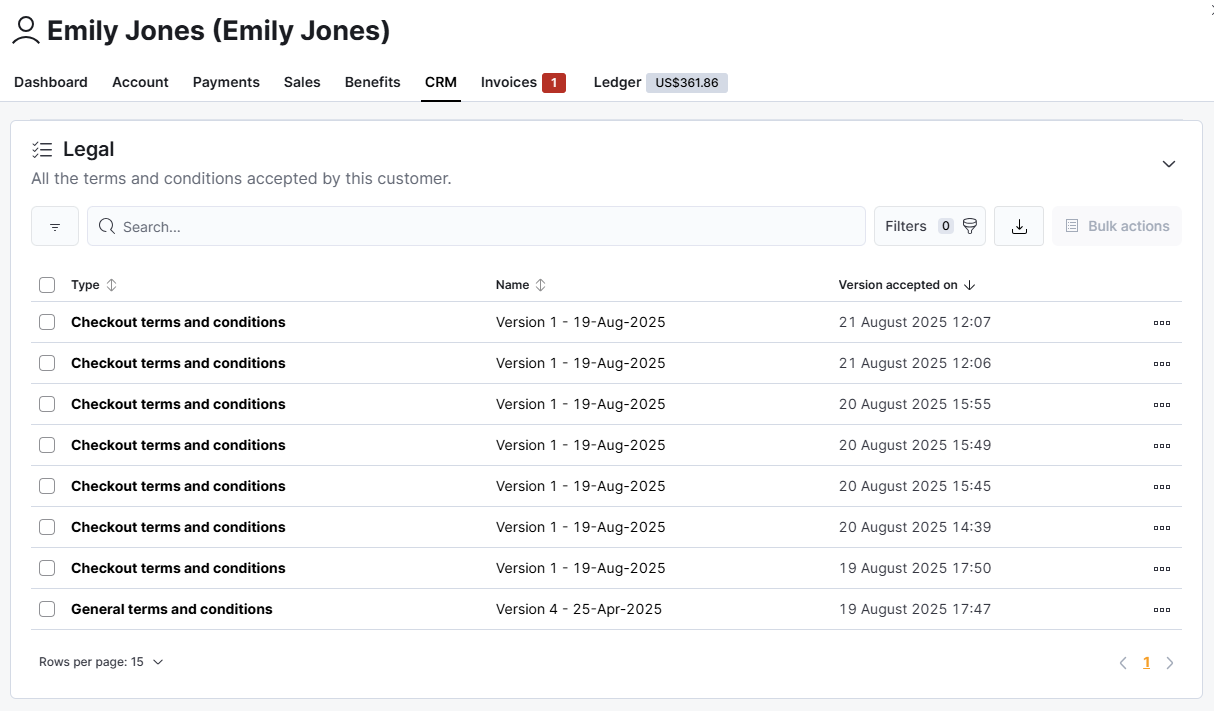📢 This documentation is a preview of a feature that will be released in the coming weeks!
What are checkout terms?
Checkout terms and conditions let you require customers to agree to your policies as they check out on your Members Portal. This applies to all purchases, from booking to signing up for a plan, or buying a product or ticket.
How checkout terms work
Setting up checkout terms and conditions is an easy two-step process.
1. Add your checkout terms and conditions
Use our built-in editor or Markdown to format your content. The Preview button lets you quickly see how they will look on the Members Portal.
2. Define how customers accept these terms
Using the Term acceptance section, you can pick one of two acceptance options: explicitly or implicitly.
For more details, check out Adding Checkout Terms
Explicit vs implicit terms acceptance
Your customers can accept your checkout terms and conditions explicitly or implicitly.
Explicitly requires customers to tick a checkbox to agree to the terms. They cannot complete their purchase if they don't tick it.

Implicitly displays a notice explaining that clicking on Complete purchase means customers agree to the terms.

There’s no right or wrong choice, but the legal enforceability of each option will vary, depending on your location. We always recommend doing your own research and checking with your legal team to make the best decision for your space.
:::
FAQ
Can I get a list of all the customers who have agreed to the checkout terms and conditions?
Currently you can only view whether customers have accepted the checkout terms and conditions on an individual basis.
You can easily check if a specific customer has accepted the terms and conditions. Open their record, click on the CRM tab, and select Legal. You'll see a record of each time they accepted the terms, including the version number, time, and date.

What happens if I update my checkout terms and conditions?
Updated terms only apply to future checkouts. Any completed checkout remains bound by the terms accepted at the time of purchase.
For example, if a customer made a booking last week for next month, and you change your terms today, that booking is bound by the terms they agreed to last week.